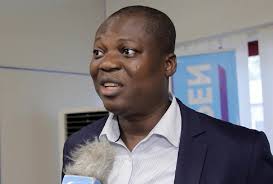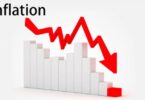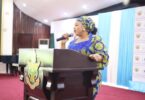Source: Political Desk
For governments, debts (bonds or long term borrowings) are normally acquired to invest in strategic national assets, hence high debt should ordinarily mean high investment in roads, hospital and school infrastructure, railway, ICT infrastructure among others to create economic opportunities for citizens.
Debt, however, becomes a burden when it is acquired and used for consumption expenditures instead of investment. In the years 2015-2016, Ghana’s high debt situation was discussed intensively but the managers of the economy then pointed to so many identifiable projects at various levels of execution with some completed in sectors such as energy, education, roads & rail, health, aviation, ports and transport, and ICT sectors before the 2016 elections. Same demonstration is needed today as we are at the threshold of the election 2020.
The nature of Ghana’s debts is such that some instruments have maturity period of 3-30 years which means interest will be paid or is being paid on the loans over the years as the principal payment is made only at the maturity of a specific debt contract.
It is therefore false to say NPP government’s high debt is because loans were taken to pay NDC debt.
What is rather true is that debts of shorter duration, say 3 years, contracted in 2015 should have been paid in full by now just as the NDC set up the sinking fund to retire maturing debts during the NPP’s regime, especially the $750m Eurobond issued by the then NPP government in 2007 and was fully amortized in April 2017.
From the above, it should be clear that current governments will always pay part of the debt acquired by previous governments including servicing interests on previous debts.
All these obligations should inform the debt management strategy of a government. No government, even if it serves two terms can claim to have solely paid the debts acquired by the previous governments.
That would be an uninformed position to propagate. Between 2009 and 2016, the NDC could not have finished paying all the debt obligations that crystallized from President Kufour or Rawlings’ era though the Mahama administration was smart and forward looking to have established the sinking fund to payoff the 2007 Eurobond.
Another structure of debt is continuous repayment of interest. The lower middle income status of Ghana implies that over 80% of our debt is now commercial with high weight of bonds. Bonds are structured to pay coupon( interest) quarterly, semi-annually and annually.
This means given annual coupon rates, the NPP government has started paying interest on all the bonds issued in 2017, 2018 and 2019.
Therefore, with high debt stock from bonds, the NPP government is paying high interest cost.
It is again wrong to think that the NPP borrowed about four times that of NDC in less than 4 years because of repayment obligations aligned with debt from NDC era. So the high risk debt distress status has nothing to do with NDC era debts but revenue challenges.
Realistically, repayment of debt should come from revenue generated from the investment of the debts. Governments’ inability to finance development projects with the debt eventually leads to the phenomenon of borrowing to pay interest especially for aged loans.
NDC should continue to account for its debts via its projects and the NPP should do same as was done by the NDC in 2016 and presently being being done.
The current high debt stock is the result of debt management orientation of the government and percentage of debt which is not even documented cannot change the narrative about the disturbing development about the debt of Ghana.
A simple arithmetic of 100% of 20billion is 20billion and 50% of 100billion is 50billion. Even though those bringing up the percentage of borrowing are not able to mention the percentage of borrowing by NPP, it is clear that a small percentage on a large figure gives a large figure and a large percentage on a small figure gives a small figure.
Hence NPP has no hiding place. Last week it was Covid-19 and this week it is percentage of borrowing. Accounting for debts with projects is all that Ghanaians want especially when the Free SHS is financed from oil money and not debt.
Source: www.thenewindependentonline.com








